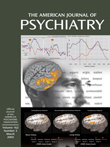Aripiprazole in a Patient Vulnerable to Side Effects
To the Editor: Although the involvement of infection/inflammation in the pathogenesis of Tourette’s syndrome has been discussed, antipsychotics are still the first choice in pharmacotherapy (1). Haloperidol and pimozide are well-established therapies (2), but increasing literature on this topic points out the advantages of atypical antipsychotics, at least regarding side effects (3, 4). Adherence to medication is a problem in Tourette’s syndrome, often because of the side effects that patients experience. In the following, we describe a patient suffering from Tourette’s syndrome who withdrew treatment from different neuroleptics, thus leading to severe social consequences for many years.
Ms. A, a 19-year-old patient, had suffered from motor and vocal tics since the age of 6. Her vocal tics included grunting, snorting, neighing, palilalia, and motor tics, such as beating and strangling herself. Additionally, she developed compulsions of washing and controlling. The course of her illness was chronic, not waxing and waning. She had experienced no tic-free interval during the last 13 years. Pharmacotherapy over the last years included 300 mg/day of tiapride, leading to an improvement of her motor tics only. Additional therapy with 300 mg/day of sulpiride first and 400 mg/day of amisulpride later each caused galactorrhea, without substantial therapeutic effect. Ms. A stopped taking both substances. Ms. A also stopped taking 4 mg/day of pimozide and later 80 mg/day of ziprasidone, each taken over several weeks; both caused amenorrhea and had only marginal effects on the tics.
Afterward, we started treatment with 10 mg/day of aripiprazole because of the side effect profile. In the first week, Ms. A’s motor and vocal tics showed a marked improvement; after 2 weeks, Ms. A was nearly tic free for the first time in 13 years. Amenorrhea or galactorrhea was not present during the next months; other side effects, such as sedation or weight gain, did not occur. Ms. A started working as a waiter for the first time. The compulsions were much improved. Only a blinking tic, which exacerbated during stress, persisted.
Aripiprazole is an antipsychotic with partial dopamine antagonism and agonism, showing effects on serotonin 5-HT2A and 5-HT1A receptors. Its advantageous side effect profile has been described earlier (5); however, no effects in Tourette’s syndrome have been observed. This case might encourage collecting not only further experience with aripiprazole in the treatment of Tourette’s syndrome but in performing systematic studies in both short- and long-term therapy.
1. Müller N, Riedel M, Zawta P, Günther W, Straube A: Comorbidity of Tourette’s syndrome and schizophrenia: biological and physiological parallels. Progr Neuropsychopharmacol Biol Psychiatry 2002; 26:1245–1252Crossref, Medline, Google Scholar
2. Sallee FR, Nesbitt L, Jackson C, Sine L, Sethuraman G: Relative efficacy of haloperidol and pimozide in children and adolescents with Tourette’s disorder. Am J Psychiatry 1997; 154:1057–1062Link, Google Scholar
3. Robertson MM, Schnieden V, Lees AJ: Management of Gilles de la Tourette syndrome using sulpiride. Clin Neuropharmacol 1990; 13:229–235Crossref, Medline, Google Scholar
4. Sallee FR, Kurlan R, Goetz CH, Singer H, Scahill L, Law G, Dittman VL, Chappell PB: Ziprasidone treatment of children and adolescents with Tourette’s syndrome: a pilot study. J Am Acad Child Adolesc Psychiatry 2000; 39:292–299Crossref, Medline, Google Scholar
5. McGavin JK, Goa KL: Aripiprazole. CNS Drugs 2002; 16:779–786Crossref, Medline, Google Scholar



